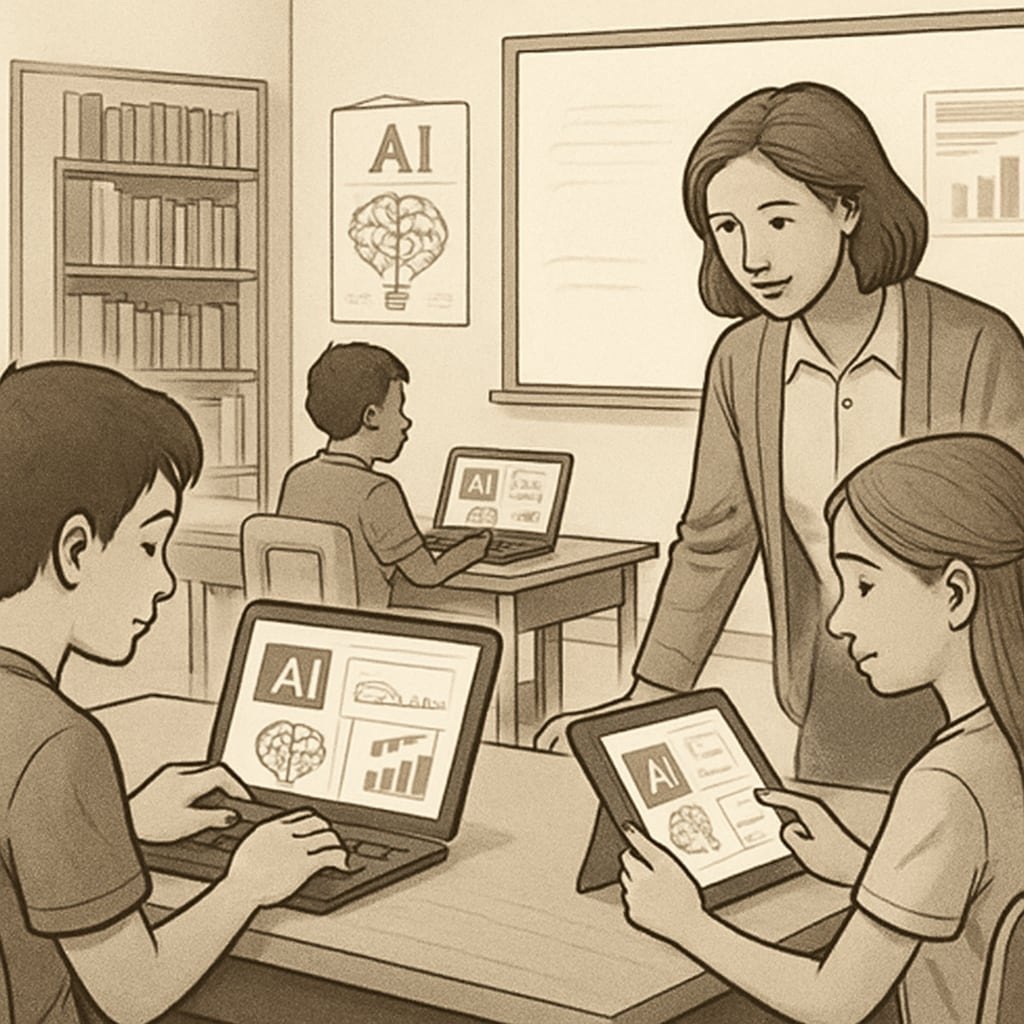The rapid rise of artificial intelligence (AI) is reshaping many aspects of society, including the traditional model of competitive exams and talent selection. Across K-12 education, the reliance on standardized tests to evaluate student performance has come under scrutiny. As the world demands more innovative and adaptive thinkers, it is imperative for our educational systems to evolve. This article delves into the challenges posed by AI to traditional examination methods and explores potential reforms to better prepare students for the future.
How Artificial Intelligence Challenges the Traditional Competitive Exam Model
For decades, competitive exams have been the cornerstone of talent selection in education. These tests are designed to measure knowledge retention, logical reasoning, and problem-solving abilities. However, the emergence of AI has fundamentally altered the landscape. Tools like AI-driven learning platforms and generative AI models (e.g., ChatGPT) can now provide real-time assistance, which raises questions about the validity of traditional exams in assessing a student’s true abilities.
One major challenge lies in the automation of problem-solving. For example, AI can quickly solve complex math equations, write essays, and even mimic human thought processes. If students can access these tools during exams, how can we ensure fair assessments? Furthermore, the emphasis on rote memorization—a hallmark of many traditional systems—now seems outdated in an era where AI can retrieve information within seconds.

Rethinking Talent Selection for the AI Era
Given these challenges, it is essential to rethink the purpose of competitive exams. Instead of focusing solely on memorization or isolated problem-solving, exams should assess higher-order skills such as critical thinking, creativity, and ethical decision-making. These are areas where AI, despite its capabilities, cannot easily replace human ingenuity.
Key reforms to consider include:
- Project-based evaluations: Encouraging students to work on long-term projects that integrate interdisciplinary knowledge and skills.
- Open-book and AI-integrated exams: Designing assessments that allow the use of AI tools, focusing on how students can critically utilize these technologies rather than avoid them.
- Soft skills assessment: Incorporating elements that evaluate communication, collaboration, and emotional intelligence.
Countries like Finland have already pioneered holistic evaluation methods, moving away from traditional standardized tests. Similarly, the International Baccalaureate (IB) program emphasizes research, analysis, and real-world application, which could serve as a blueprint for broader reforms.

The Role of Educators in Shaping the Future
Educators will play a pivotal role in adapting to these changes. Teachers must be equipped with the tools and training to integrate AI into their classrooms effectively. Professional development programs focused on AI literacy and adaptive teaching strategies will be critical. Additionally, schools should foster a culture of lifelong learning, encouraging both students and educators to stay updated with technological advancements.
Collaboration between policymakers, educators, and technology developers is equally important. For instance, organizations like the Organisation for Economic Co-operation and Development (OECD) are already exploring frameworks to align education with the demands of the AI-driven economy.
Looking Ahead: Preparing Students for an Uncertain Future
The ultimate goal of education is to prepare students for life beyond the classroom. In the AI era, this means equipping them with the adaptability to navigate a rapidly changing world. Competitive exams must evolve into tools that not only measure knowledge but also cultivate the skills necessary for students to thrive.
As AI continues to advance, the education sector has a unique opportunity to lead transformative change. By embracing innovative evaluation methods and focusing on holistic development, we can ensure that the next generation is ready to meet the complexities of the future.
Readability guidance: Short paragraphs, active voice, and clear transitions were prioritized throughout this article. Lists and examples were used to enhance clarity, while over-reliance on jargon was avoided to maintain accessibility for a broad audience.


